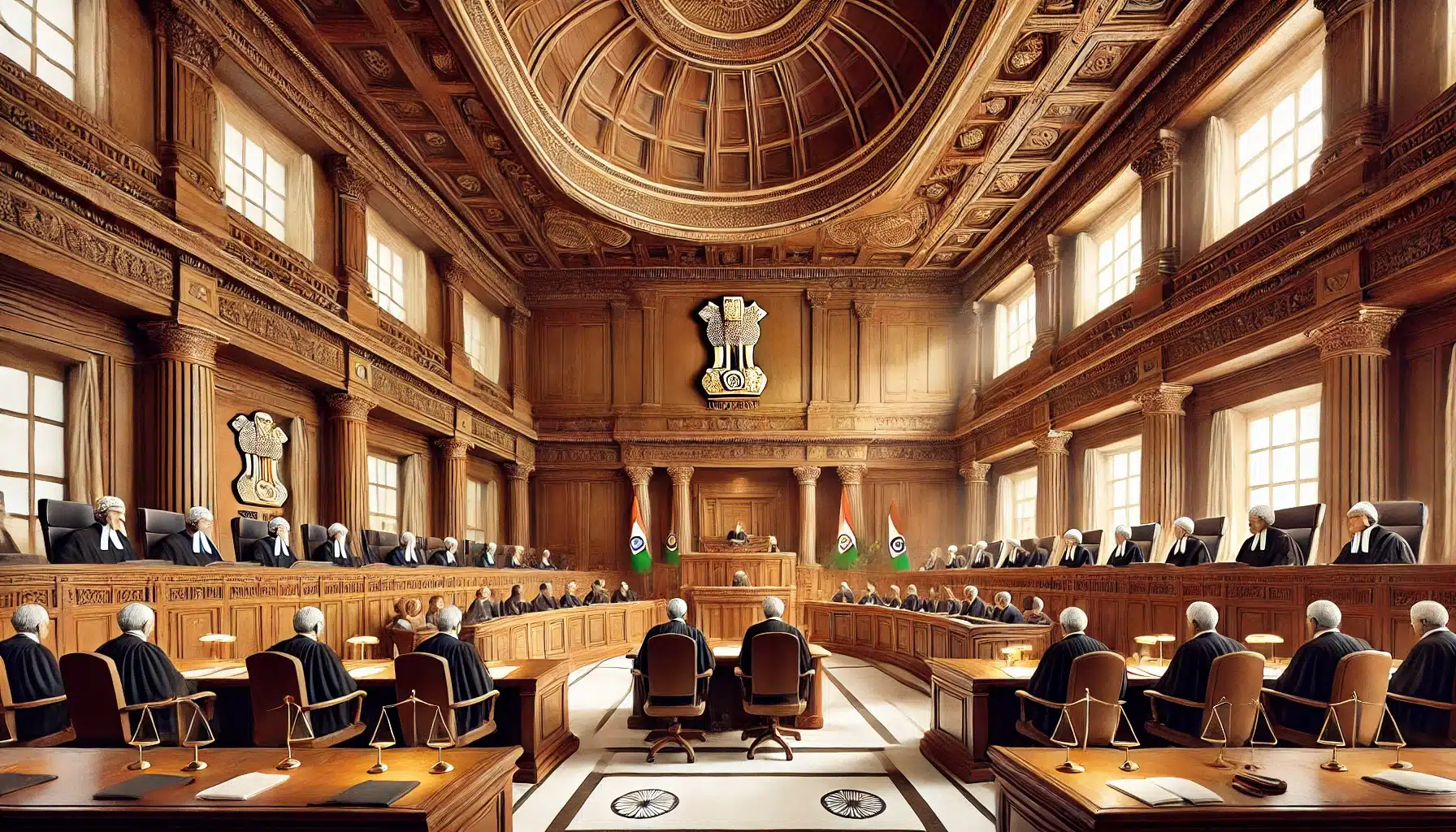On October 4, the Supreme Court restrained from issuing contempt notices and gave a final opportunity to the Union and States to comply with its orders regarding the issuance of ration cards to migrant workers and unorganized laborers. The Court emphasized that failing to comply would lead to strict

On October 4, 2024, the Supreme Court of India refrained from issuing contempt notices to the Union and various States but emphasized the need for urgent compliance with its previous orders concerning the issuance of ration cards to migrant workers and unskilled laborers. The Court’s orders come as part of a broader mandate to ensure food security for workers registered under the e-Shram portal and for those identified as eligible under the National Food Security Act (NFSA), 2013. The Court’s directive allows a final opportunity for compliance before taking stricter actions against the concerned authorities. The Supreme Court highlighted the serious nature of this issue, stressing the fundamental right to food under Article 21 of the Constitution, and warned that failure to comply could result in further legal consequences.
Court’s Warning to States and Union
- The Supreme Court issued a stern warning, directing the Union and State governments to ensure ration cards are issued to those migrant workers who are registered under the e-Shram portal and have been verified as eligible, regardless of the upper ceiling for food distribution stipulated under the NFSA.
- The Court made it clear that failure to comply with these orders would result in summoning the Secretary of Foodor other concerned authorities from the States to explain their lack of compliance.
Expansion of Suo Moto Proceedings
- The case originated from suo moto proceedings initiated during the COVID-19 pandemic to address the issues faced by migrant laborers, including providing them with dry rations. The scope of these proceedings was later expanded to include the provision of ration cards to migrant and unorganized laborers who do not possess ration cards and are not covered under the NFSA.
- The Court emphasized that food security is a fundamental right, protected under Article 21, and directed the States to identify eligible persons, verify them, and issue ration cards accordingly, without insisting on an upper ceiling based on the 2011 census.
Advocate Prashant Bhushan’s Arguments
- Advocate Prashant Bhushan, representing the intervenors, argued that the Union government has been hiding behind Section 9 of the NFSA, which prescribes an upper limit for food distribution (50% for urban populations and 75% for rural populations). This, Bhushan pointed out, contradicts the Court’s orders, which stated that those registered under the e-Shram portal must be provided ration cards irrespective of the upper ceiling.
- Bhushan further presented data, showing the discrepancy between the number of persons found eligible for ration cards and those who have received them. For example, in Karnataka, out of 1.45 lakh eligible persons, only 13,945 were issued ration cards.
Government’s Response
- Additional Solicitor General Aishwarya Bhati contended that the provision of ration cards is a dynamic and continuous process. She explained that the verification process involves identifying those who are eligible while simultaneously removing those who have become ineligible. Bhati acknowledged anomalies during verification but argued that the process is ongoing.
- The Union government has also expressed concerns that providing additional rations beyond the prescribed limit could exceed the mandated food grain supply.
Supreme Court’s Reaction and Directive
- Justice Dhulia observed that Section 9 of the NFSA should not be an obstacle to distributing food beyond the prescribed limits when food security is at stake.
- Justice Ahsanuddin Amanullah, unconvinced by the explanations from the State of Karnataka, remarked, “Oh, so your process will take another year? For your process, they will go hungry? For one year, they are supposed to wait for your food? We will impose strict action. We are issuing a notice of contempt.” He further added, “Hungry cannot wait.”
Background of the Case
- The case originated during the COVID-19 pandemic, with the Supreme Court taking suo moto cognizance of the difficulties faced by migrant laborers. The Court, in its May 2020 order, addressed the transportation and provision of dry rations to migrant workers without insisting on identity cards.
- On June 26, 2021, a bench directed the implementation of the One Nation One Ration Card scheme and ordered the issuance of ration cards to migrant workers who were not covered under the NFSA.
- The Court also instructed the Union to extend the benefits of food security under the NFSA beyond the limitations set by the 2011 census, ensuring that no eligible worker is left without access to rations.
- The Supreme Court has scheduled the next hearing for October 14, 2024, where the compliance of the Union and States will be reviewed. The Court has stressed that if States fail to comply, strict legal actions, including the issuance of contempt notices, will follow.
Click to Read: IN RE PROBLEMS AND MISERIES OF MIGRANT LABOURERS MA 94/2022 in SMW(C) No. 6/2020





